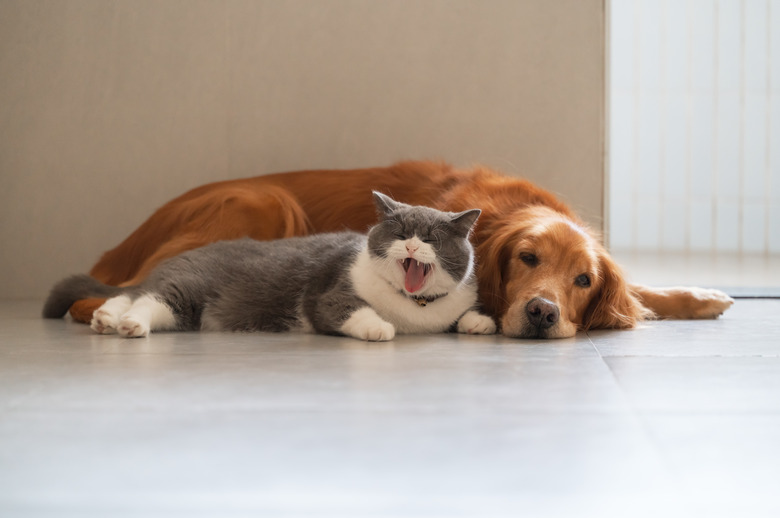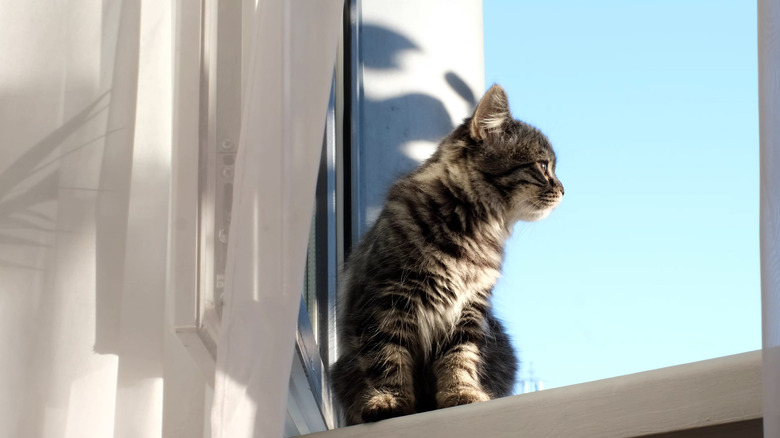Ivermectin For Cats: Uses, Dosage And Side Effects
When it comes to medication, it can be difficult for pet owners to decide which preventatives and prescriptions are best. Fortunately, there are some preventatives and treatments that are approved by the Federal Drug Administration (FDA) for use in dogs and cats. Ivermectin is just one type of drug you may encounter when searching for options for your cat.
What is ivermectin for cats?
What is ivermectin for cats?
Ivermectin is an antiparasitic drug used as a preventative and treatment for specific ailments in cats 6 weeks of age or older. Oral and topical solutions of ivermectin are available from veterinarians. In case of an overdose or side effects, cat owners should seek emergency veterinary care.
Ivermectin for cats: Uses
Ivermectin for cats: Uses
Ivermectin was approved in 1996 by the FDA for use in dogs and cats to treat certain parasitic infections and as a heartworm preventative. Under veterinarian guidance, it may be used for other extra-label purposes as well. Ivermectin has been used in veterinary medicine to treat external parasites like:
- Ear mites (Otodectes cynotis): This is a surface mite that can live on dogs and cats as well as rabbits and ferrets.
- Cat scabies (Notoedres cati): Notoedres cati is a feline mite that is closely related to sarcoptic mange mites in dogs.
- Hairclasping mite (Cheyletiella): Adult hairclasping mites live on a cat's skin.
- Ivermectin also treats roundworms and hookworms in dogs.
Ivermectin dosage for cats
Ivermectin dosage for cats
The recommended dosage of ivermectin for cats as a heartworm preventative is 24 micrograms per kilogram of body weight by mouth every 30 days. Heartworm preventatives are prepackaged in the correct amount based on the size of the cat. Other formulations of ivermectin shouldn't be used.
Before a cat is prescribed heartworm preventatives, their veterinarian will need to perform a heartworm test to ensure that they don't already have the parasite. Giving ivermectin to a cat with heartworm disease can cause the worms to die, leaving cats with a dangerous anaphylactic-type reaction. Cats with heartworm infections may also need to have other diagnostics done, such as chest X-rays and an echocardiogram. Heartworm can lead to lung disease as well, and if a cat is found to have lung disease, they will also need to be prescribed medications to treat that.
A single dose of 200 micrograms per kilogram of body weight given as a subcutaneous injection is the standard for use in the treatment of ear mites. However, veterinarians are more likely to prescribe topical eat mite products for cats instead of injectable ivermectin. A high dose of 400 micrograms per kilogram of body weight administered subcutaneously has been used to cure feline mange, but this dose can cause toxicity in some cats.
A cat's veterinarian will determine which products are best for each pet. A popular option is Feline Revolution and Feline Revolution Plus, which work against ear mites as well as provide heartworm prevention. Selamectin is the active ingredient in these products.
Side effects of ivermectin for cats
Side effects of ivermectin for cats
When given under the supervision of a veterinarian, ivermectin is safe for most cats. Allergies to the drug are not common but can cause adverse reactions. Ivermectin toxicity can also occur if too much of the drug is given to a cat. Cats under 1 year of age are more prone to nervous system toxicity from higher doses. Some side effects to look for include:
- Blindness: Clinical signs of blindness can include cloudy eyes, uneven pupils, and bumping into objects.
- Lack of coordination (also known as ataxia): A cat suffering from ataxia may have a wobbly gait and sway when they walk.
- Lethargy: When cats are lethargic, they may eat less, play less, and hide from humans with whom they are normally affectionate.
- Dilated pupils (mydriasis): Cats' pupils can become dilated if they are startled by something. However, if it is ongoing, it might be a concern.
- Upset stomach: A cat with an upset stomach may vomit; have diarrhea; refuse to eat; or show signs of nausea, such as licking their lips.
- Lack of appetite and/or thirst: If a cat is eating or drinking less than usual after receiving a dose of ivermectin, it should be mentioned to the veterinarian.
- Seizures: Seizures cause unusual behavior, such as excessive drooling, aggressive behavior, and facial twitching.
- Death: In the most extreme cases, ivermectin toxicosis can lead to death if the cat is not brought to the veterinarian immediately.
FAQs about ivermectin
How is ivermectin given to cats?
Ivermectin is given to cats as a tablet, a topical liquid, or an injectable that is administered by a veterinarian. It is often combined with other deworming medications to provide protection against multiple types of parasites and infestations. In any form, ivermectin will be prescribed by a veterinarian along with instructions specific to each cat.
Does ivermectin have any reactions with other medications?
Yes, ivermectin can cause reactions when combined with other medications. Some medications can increase the effects of ivermectin on a pet's brain. It's important for owners to discuss any medications and supplements that their cat is on with their veterinarian to avoid serious reactions.
How do I store ivermectin?
Ivermectin should be stored in a cool, dry place away from heat and direct sunlight. If ivermectin is exposed to heat or moisture, it could reduce its effectiveness.
The bottom line
The bottom line
Ivermectin is safe to use for cats under the supervision of a veterinarian. It can be used in some treatment plans as well as for heartworm prevention. There is a risk of side effects with any medication, but as long as owners are operating under the advisement of their veterinarian, there is no reason to worry about giving the appropriate doses of ivermectin to cats.


